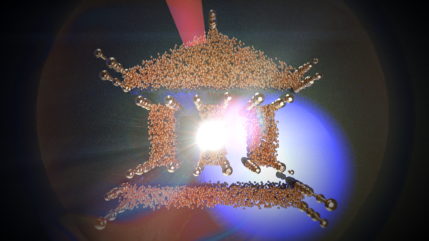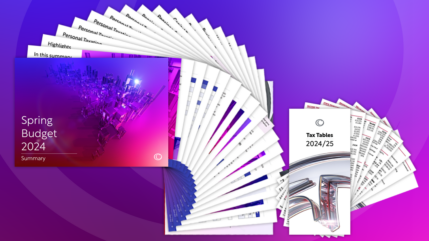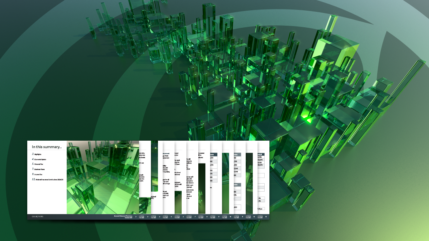“A penny saved is worth two pennies earned …after taxes”
(Randy Thurman)
Benjamin Franklin famously said “…in this world nothing can be said to be certain, except death and taxes”. But, although we are yet to solve the ultimate enigma, the latter is certainly something that can be mitigated with some careful planning and the right knowledge. This article will show you how a little information, and the relevant form, could keep the taxman away from your hard earned pension and leave your loved ones a lot better off.
Dependant no more!
From 6th April 2015 the second phase of the government’s radical shake up of the pension industry came into force. Now known as the “Pension Freedoms Act”, the new rules allow greater flexibility of how members of pre-retirement or drawdown pension schemes can distribute their pension funds and the ways in which beneficiaries can receive the members’ benefits. Under previous rules, although a member could appoint a number of beneficiaries, only a dependant could receive an income. All other beneficiaries could only have taken a lump sum.
Under new rules a member can appoint multiple beneficiaries that are NOT dependents, so that they can then take benefits as an income and / or lump sum. (This does not apply to pension annuities and any reference to “Pension” will relate to pre-retirement and drawdown schemes).
The definition of a dependant, for the purpose of receiving benefits, was either a spouse, civil partner, child under 23 or someone who was financially dependent on the member. Now, the rules have introduced two further types of beneficiaries called “Nominees” and “Successors”.
Nominee – an individual nominated by the member or scheme administrator who is not a dependant of the member.
Successor – an individual nominated by a dependant, nominee, previous successor or the scheme administrator.
So what does this all mean for me?
The introduction of these new classes of beneficiary essentially means that a pension fund can now be passed on through generations until the fund runs out, whereas before, if the dependant died whilst in receipt of the member’s pension, it would be paid out as a lump sum into their estate and potentially taxed at 40% under Inheritance tax rules (IHT). To put this in context, the following case study shows a before and after look at the new rules in practice and how they can help with inheritance tax and succession planning.
Case Study- Paul
Paul is aged 76 and has a drawdown fund of £500,000. He is married to Wendy (age 70) and they have one son, David, who is in his forties and have two grandchildren aged 13 and 15. Paul has significant other assets and believes that Wendy will not need the whole pension fund after his death and would ideally like his son and grandchildren to benefit from his pension as well.
The Old Rules
Paul dies shortly after but had stipulated that he would like to leave 50% of his drawdown fund to Wendy, 30% to David and 10% to each grandchild. Under the previous rules, only Wendy could continue with drawdown taxed at her marginal rate, as neither David nor his grandchildren were dependent on him. Therefore, to fulfil Pauls wishes Wendy could either take her 50% share of Paul’s pension as an income, taxed at her marginal rate, or take a lump sum minus 55% tax. The residual fund split between David and the grandchildren could only be taken as lump sums and would be liable to 55% tax.
The New Rules
Using the same scenario but under the new rules, Paul can nominate Wendy, David and his grandchildren as “Nominee’s”, enabling them to take an income from the pension under dependant drawdown rules should they wish too. The benefit of this is that they can take the income as and when they choose, to suit their individual circumstances.
As Paul was over 75 when he died, any benefits will be liable to tax at the “Nominee’s” marginal rate on either the lump sum or income.(45% tax is currently payable on lump sums but this will change as of April 2016) Due to their current position Wendy and David decide to take an income and will therefore pay tax at 20%, as they are basic rate tax payers (provided the income they take doesn’t take them above the higher rate threshold) and the grandchildren will pay no tax on the first £10,600 of the income taken.
Comparison
Taking this one step further, Wendy now in receipt of her £250,000 share of Paul’s pension, decides to fill out a nomination form and names David as “Successor”. Wendy dies shortly after at the age of 72 having never touched the pension. As a result, the full £250,000 is now David’s and he can take an income or lump sum tax free, as Wendy was under 75 when she died. David can also fill out a nomination form for his share of the pensions and name his children as “Successor’s” should he wish too. Therefore, upon David’s death any residual funds can be passed down to his “Successor’s” until the fund runs out.
Summary
In summary, it is clear to see that by filling out a simple nomination form considerable tax can be saved, whilst making specific bequests as to whom you would like to benefit from your pension. This can be a useful tool when looking at inheritance tax and further illustrates how thorough planning can prevent your loved ones being burdened with unnecessary tax bills. As ever, your Courtiers adviser will be happy to guide you through the changes and help you with your future planning needs.
The scheme administrator has absolute discretion over the payment of death benefits. Tax treatment depends on individual circumstances and is subject to change. The lifetime allowance check still applies to uncrystallised benefits.













